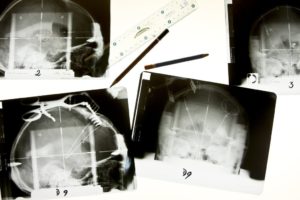HDRF Depression Task Force in the News,
October 8, 2019
We’re pleased to share the recent New York Times coverage of major results from the lab of Depression Task Force member Helen Mayberg, a professor of neurology, neurosurgery, psychiatry, and neuroscience at Mount Sinai.
Brain Stimulation Shows Promise in Treating Severe Depression (Oct. 4) reports on Dr. Mayberg’s pioneering work in Deep Brain Stimulation (DBS) — a novel treatment for severe depression that involves implanting electrodes in the middle of the brain.
Over several years, Dr. Mayberg’s lab has assessed the effects of Deep Brain Stimulation on a select group of severely depressed patients, in a major study funded in part by HDRF, thanks to your support. Desperate for answers, the patients came to Mayberg after repeated failure to respond to antidepressants, psychotherapy, and even electroshock therapy.
Dr. Mayberg’s study, published October 4 in the American Journal of Psychiatry, showed that the patients not only responded to DBS, but continued to feel better even eight years later, an astounding outcome for such severe illness.
“The bottom line is that if you get better, you stay better,” said Dr. Mayberg. “You don’t lose the effects over time. You wear the device like a pacemaker, and you stay well.”
Dr. Mayberg’s work is an exciting example of the advanced research of the Depression Task Force, a unique collaboration of top neuroscientists working with and funded by the Hope for Depression Research Foundation. The Task Force has created a bold research plan to find the brain circuits of depression and targets in the brain for new and better treatments.
Dr. Mayberg’s knowledge of human brain circuits both informs – and is informed by – data from the animal research of her Depression Task Force colleagues. Her role in the collaboration is essential to a more fundamental understanding of the brain’s complex mood centers and how to intervene in depression.
Dr. Mayberg’s work provides much hope for people with severe treatment-resistant depression and their families. Please consider making a gift today to help maintain this groundbreaking research progress.


